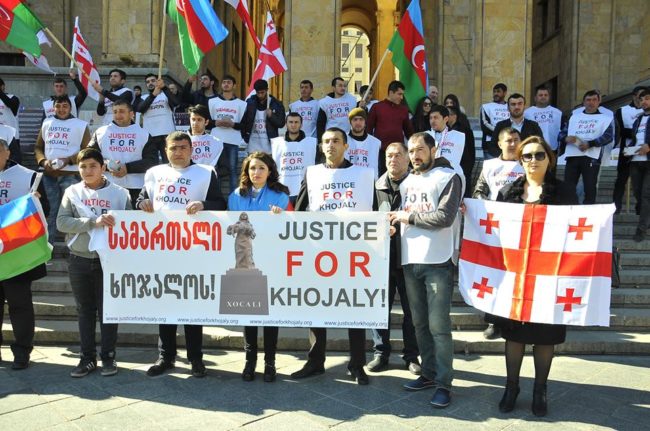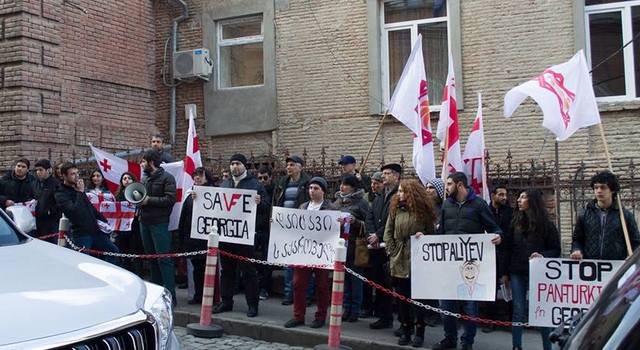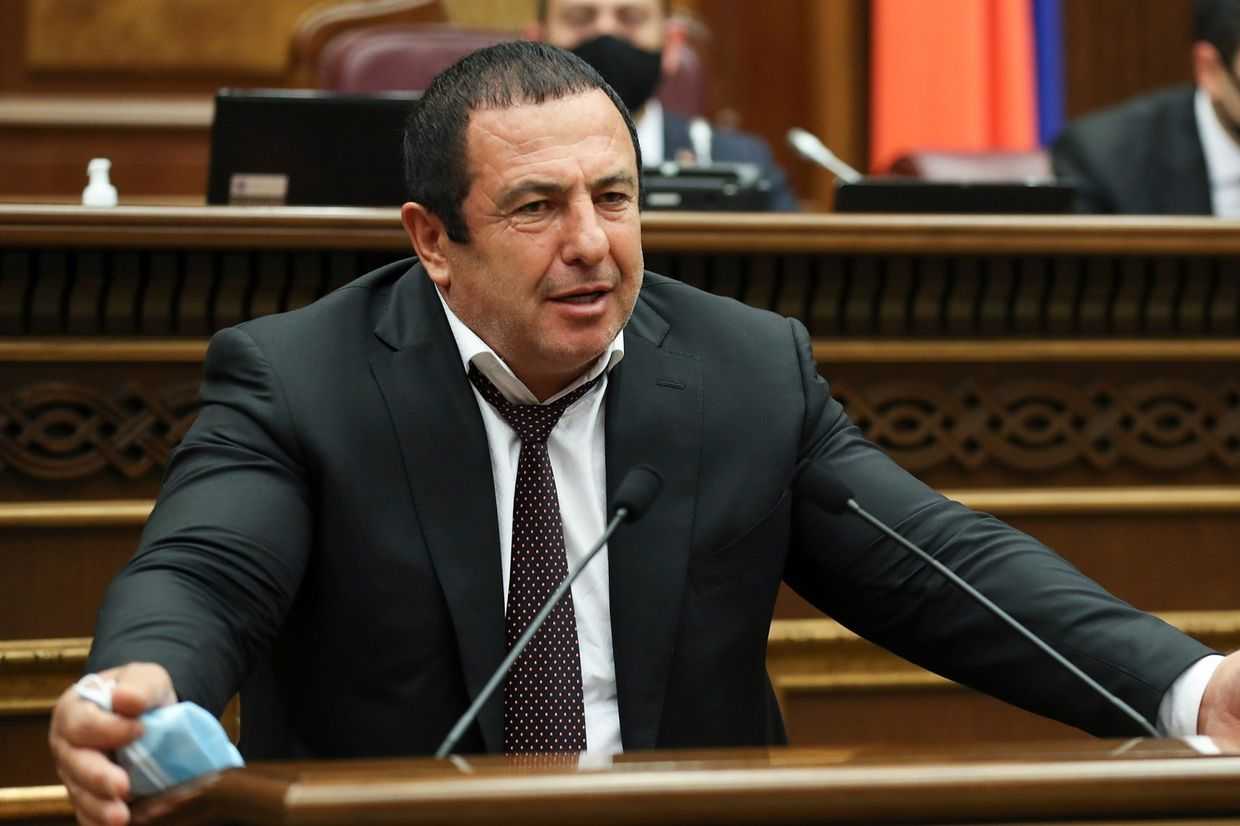Georgia’s Armenian and Azerbaijani activists at odds over commemorations of the Khojaly Massacre


 Controversy surrounding commemorations for the 1992 Khojaly Massacre, which took place during the Nagorno-Karabakh War, has crept its way into Georgia. Despite a long record of peaceful coexistence between Georgia’s Armenian and Azerbaijani communities, a campaign calling for recognition of the tragedy as genocide has provoked indignation from activists.
Controversy surrounding commemorations for the 1992 Khojaly Massacre, which took place during the Nagorno-Karabakh War, has crept its way into Georgia. Despite a long record of peaceful coexistence between Georgia’s Armenian and Azerbaijani communities, a campaign calling for recognition of the tragedy as genocide has provoked indignation from activists.
While thousands of Azerbaijanis commemorated the 25th anniversary of the Khojaly Massacre in Baku, Azerbaijan, a smaller-scale procession was held on the central Rustaveli Avenue in the Georgian capital Tbilisi on 25 February. The event, organised by the ethnic Azerbaijani activist group Borchali Ireli, was attended by the Georgian member of parliament for Marneuli, Azer Suleymanov, chairman of the Georgian–Azerbaijani Lawyers Association, Ali Badirov, chairman of the National Congress of Georgia’s Azerbaijanis, Ali Babayev, and some 50 people, mainly ethnic Azerbaijanis.
The Khojaly Massacre occurred on 25–26 February 1992, during the armed conflict between Azerbaijani and Armenian forces for control over the territory of Nagorno-Karabakh. Azerbaijan claims that Armenian armed forces, along with members of the Russian Army’s 360th regiment, attacked the town of Khojaly, leaving 613 ethnic Azerbaijani civilians dead and forcing over 5,300 to flee, which constitutes genocide. Armenian leaders deny that civilians were targeted in Khojaly. South Caucasus expert Thomas de Waal writes in his book, Black Garden, that the death toll of 485 suggested by the official Azerbaijani parliamentary investigation seems the most reliable. He writes that even if the figure includes combatants and those who died of cold, it ‘still dwarfs any body count’ of the Nagorno-Karabakh war.
Participants of the rally in Tbilisi raised banners with slogans such as ‘Freedom to Karabakh’ and ‘Georgian and Azerbaijani lands should be liberated’. The flags of Azerbaijan and Georgia were also waved.

Two days later, on 27 February, an Armenian activist group, the Community of Armenians in Georgia, held a rally outside the Ministry of Foreign Affairs in Tbilisi against the ‘actions of Azerbaijan igniting hatred of Georgian citizens against each other’. Organisers of the rally said that the purpose of the action was to ‘prevent interference from Azerbaijan’s policy in Georgia’.
The president of the Community of Armenians in Georgia, Samvel Mkrtchyan, accused the Azerbaijani Foreign Ministry of interfering with the internal affairs of Georgia. He claimed that in recent years, this has been happening under the guidance and with the financial support of the Azerbaijani Embassy in Georgia.
‘The authorities behave as if they are turning a blind eye, and that poses a threat to security, democracy, and the future of the country. This is the reason for the protest, and we hope that our voice will be heard and that the Foreign Ministry will act according to the law, that is, to defend the independence and the laws of Georgia’, Javakheti-based online media outlet Jnews quoted Mkrtchyan.
Zaur Khalilov, executive director of the Civic Integration Foundation, a Georgian organisation focusing on ethnic minorities, expressed concern at the prospect of the Armenian–Azerbaijani dispute being brought into Georgia. He suggested that joint commemorations of such tragedies are the best solution.
‘In general, ethnic minorities living in Georgia need to realise that problems concerning their country, Georgia, must be more of a priority to them, than the problems concerning their ethnic homeland’, Khalilov told OC Media.
‘I’d be more than happy if I saw ethnic Azerbaijanis and ethnic Armenians commemorating the Khojaly tragedy together, stressing that things like that must never happen. This would be a proper message to everyone’, he added.
According to Georgia’s 2014 census, 233,000 ethnic Azerbaijanis and 168,100 ethnic Armenians live in Georgia, making up around 11% of the country’s population. Khalilov outlined a handful of settlements in Georgia where minority groups live together as a genuine community. For example, the village of Tsopi in Kvemo Kartli, south of Tbilisi, is co-inhabited by ethnic Azerbaijanis and ethnic Armenians.
‘There has always been an informal agreement that the conflict between Armenia and Azerbaijan cannot affect the ethnic communities living in Georgia’, Khalilov recounts. ‘But in recent years, both Armenia and Azerbaijan have not been encouraging peace.’
In response — Khalilov suggests that Georgia needs to come up with a long-term strategy concerning relations with its neighbours and maintain balance between the two countries. He also suggests that the state needs to promote more integration and to improve the level of Georgian language proficiency among Georgia’s ethnic Armenian and ethnic Azerbaijani communities.
The facts behind the Khojaly Massacre remain one of many disagreements in the larger conflict over Nagorno-Karabakh. The territory is still disputed, internationally recognised as a part of Azerbaijan, but controlled by the de facto Republic of Nagorno-Karabakh, which is backed by Armenia.







